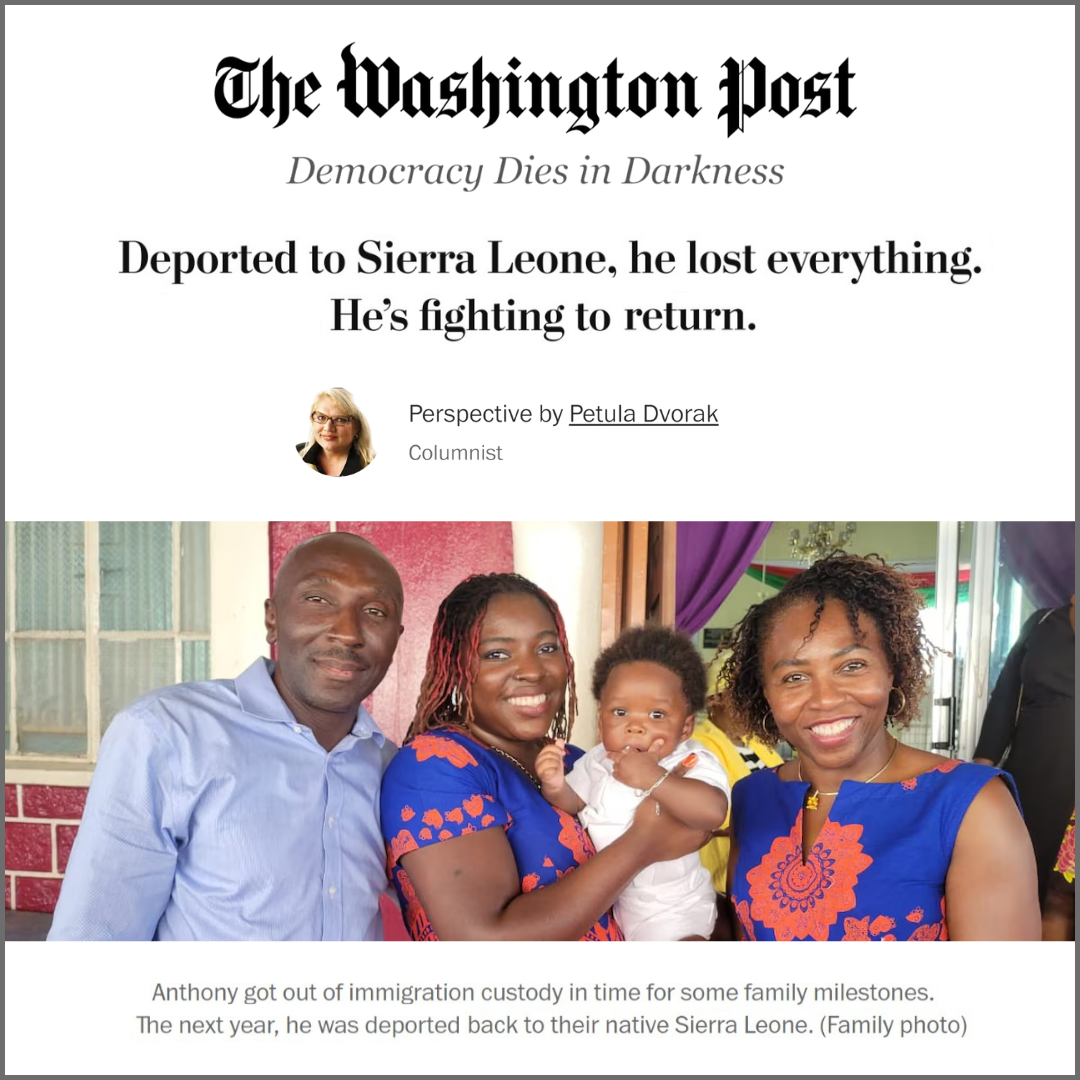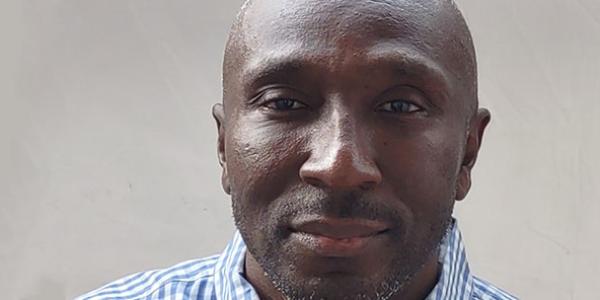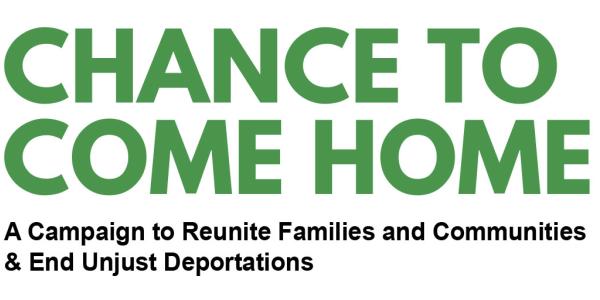“I don’t want to be one of the casualties of war.”
Samuel, now 50, arrived in the United States in the 1970s, when he was four years old, and received lawful permanent resident status in 1989. Samuel struggled with drug addiction as a teenager and, coming of age as a Black man at the height of the U.S. government’s “War on Drugs,” received long and harsh prison sentences for several non-violent drug-related criminal convictions when he was only 20. After serving his sentence, ICE detained him for another two years and then released him on an order of supervision which required ICE to determine that he was neither a flight risk nor a danger to the community, which Samuel complied with for seven years. During that time, he worked hard to change the course of his life and overcome his addiction. Then, under the Trump administration, ICE suddenly re-detained and deported him to Sierra Leone. Waiting in exile for a chance to come home, Samuel recently lost the opportunity to say goodbye to his mother before her death.

Surviving America’s War on Drugs
Samuel has suffered the full force of the United States’ racist drug and immigration policies of the past 40 years. Today, the criminal sentence Samuel received for his drug convictions would be significantly shorter due to drug sentencing reforms intended to remedy the worst excesses of the so-called War on Drugs, which resulted in mass incarceration of young Black men for non-violent drug convictions. After serving his harsh criminal sentence, Samuel spent two more years in ICE detention. When ICE released him into his community under supervision, Samuel overcame his addiction, found steady work, and reconnected with his daughter. He took his reentry seriously and committed himself to rebuilding a healthy, meaningful life. During this time, Samuel founded a powerful youth mentoring program called Mentor-2-Work.
Deportation
In 2019, after Samuel had complied for eight years with all of the many obligations placed on him under supervised release, ICE suddenly detained and deported him to Sierra Leone, a country he had never known. He never had the chance to hug his mother, Gloria, goodbye before she passed away in the United States in 2021.
Life in Sierra Leone
Since his deportation, Samuel has suffered a high degree of mental suffering. He is completely isolated because he has no friends or family in Sierra Leone, he does not speak any of the native languages, he does not understand the tribal laws in the country, and he is shunned as a criminal deportee. As a result of this deportee status, he cannot get a job. Samuel feels suicidal due to his isolation and the burden of financial dependence on his family.
Image
“I don’t want to be one of the casualties of war. I want the American government to realize that I fell into every agenda you’ve ever put into place. From the crack law to immigration law, every law you put in place.”
Samuel has a pending U-Visa application with U.S. Customs and Immigration Services (USCIS) and has asked DHS to grant him humanitarian parole so that he can reunite with his family and seek the mental health support he needs while pursuing his U-Visa status. Samuel has also requested that DHS exercise prosecutorial discretion to agree to reopen and dismiss his immigration case so that he can come home.
Samuel is represented by Sarah Gillman at Robert F. Kennedy Human Rights.
- Deported to Sierra Leone in 2019 after 40 years in the U.S.
- Punished with deportation, despite recovering from addiction after completing a harsh drug-related criminal sentence
- Lived in Washington, D.C.
- Separated from sister, brother, and mother who passed away in 2021
Image
Read more stories:



